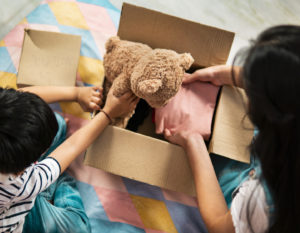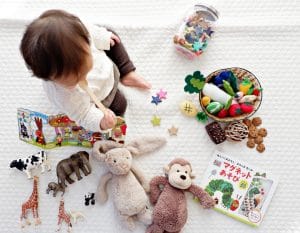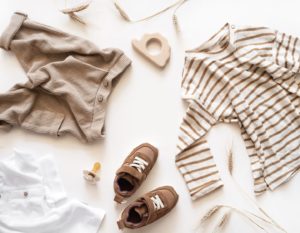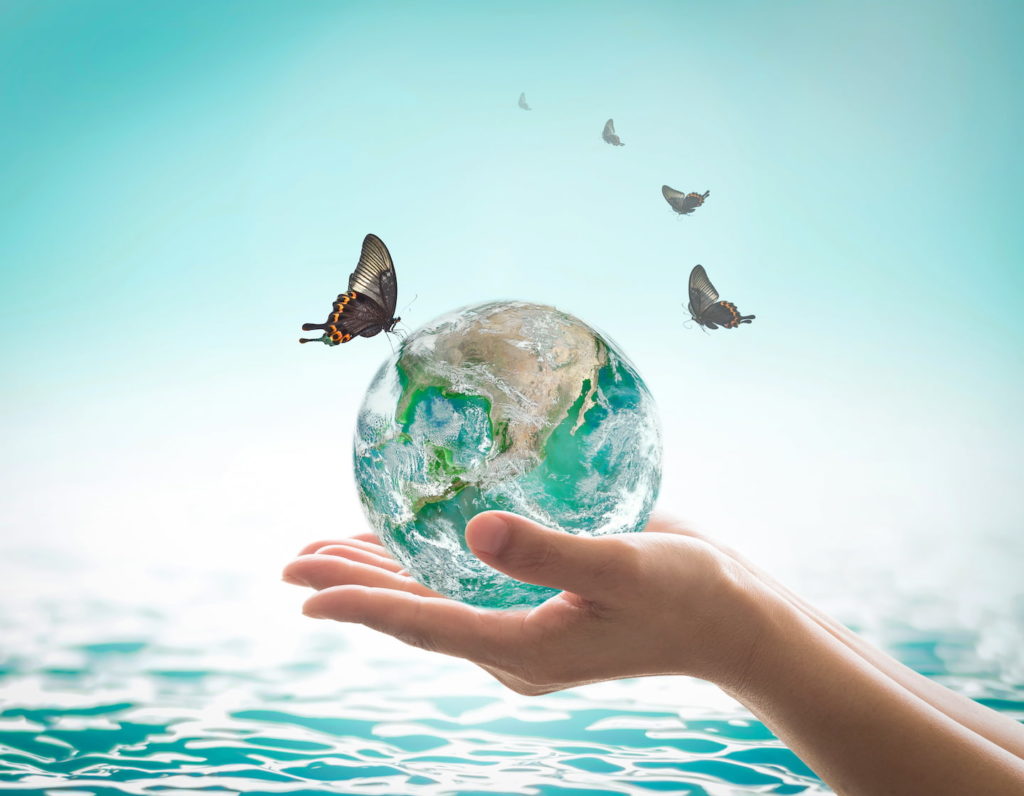
On World Oceans Day, a Hong Kong mama explores ocean conservation and how each of us could make a difference.
It’s no secret that our oceans need saving. Beautifully described by the WWF on why oceans matter as “the beating blue heart of our planet and the largest habitat on earth”, these amazing water bodies give us water, air, food and indeed, life itself. Reason enough for each of us (and our children) to make a sea change in our attitude towards ocean conservation. If you want your kids to inherit a cleaner planet, you can start by doing your bit towards saving our seas. And on World Oceans Day, we wanted to highlight the many engaging, informative and useful ocean and marine life protection activities in Hong Kong that the whole family can participate in.
Read more: How To Teach Your Kids About Sustainability
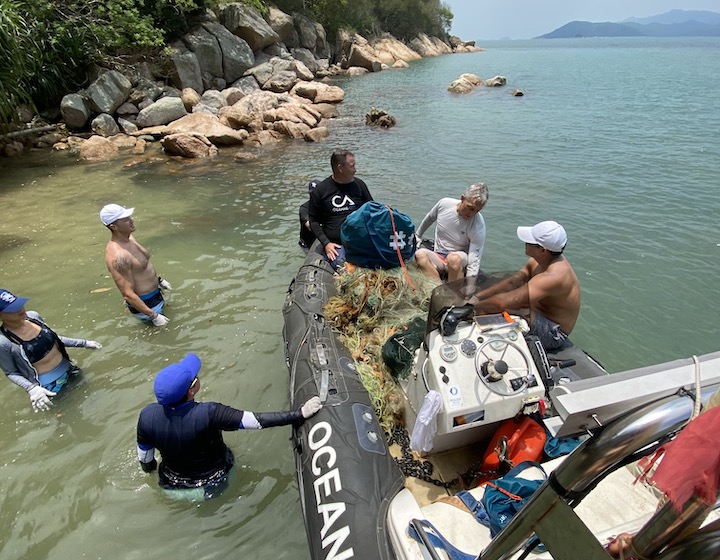
Sea Pollution: A Net Loss
A few weekends ago, my friends and I, along with our children, found ourselves sailing towards the Chi Ma Wan coast of Lantau island. But we were not on a typical Saturday pleasure junk outing; instead, we were on a mission to haul ghost nets out of the water with Gary Stokes.
Stokes, a veteran marine activist and featured in the much talked about Seaspiracy, is the founder of Oceans Asia. The more he shared with us about how ghost nets are considered the most deadly marine plastics debris, the more determined we were to pull out as much as possible. “Ghost nets,” said Stokes “are lost or abandoned fishing nets. They pose a particular risk to marine life who get entangled in these nets and die by suffocation.” According to a WWF report, 500,000 to one million tonnes of ghost gear enters our oceans each year, which means, at this rate, there could be more plastics in the ocean than fish (by weight) by 2050. An alarming prediction indeed!
The plastic netting takes up to 600 to 800 years to decompose, and it’s estimated more than two-thirds of North Atlantic fish have ingested microplastics which then makes its way into the food chain. Currently, ghost nets account for about 10% of marine litter, with plenty available for hauling along Hong Kong’s coastlines.
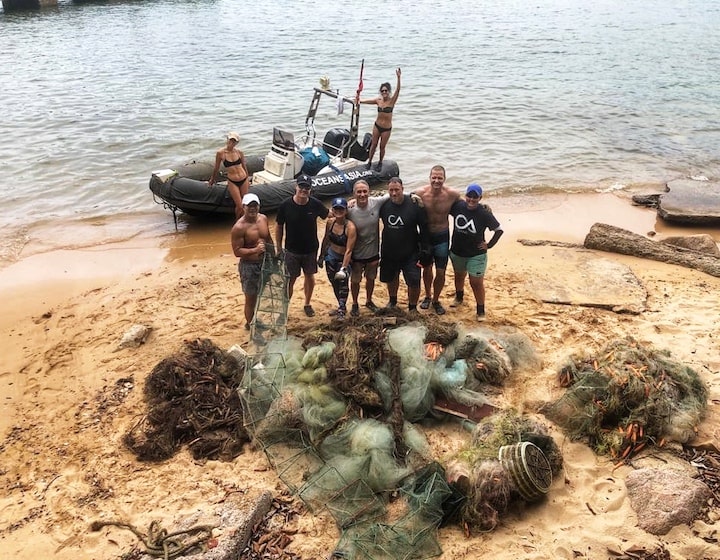
You Can Join In Too
Three hours and one-and-a-half tonnes of ghost nets later, we were exhausted from pulling in nets. We had towed the nets onboard Stokes’s speedboat, the Seawolf, and underfoot were piles upon piles of slimy grey-green hued netting. Our haul may have been hefty, but there were no treasures. Caught amongst the nets were decomposed fish and strangled marine life; my husband was urgently cutting a part of the net to set free a crab who showed signs of surviving. As a group, we were quiet while the boat surged towards the beach for us to unload the nets. There was muted satisfaction knowing we, as individuals, were able to contribute to ocean conservation in a small way.
If you are interested in participating in a ghost net trip or getting involved with the NGO, register with Oceans Asia. On our trip, Stokes teamed up with Naomi Brannan of SEAMAR, a research organisation that studies threatened marine animals, to share with the children about ocean and marine conservation. This could be a valuable learning opportunity for the whole family.
Read more: Kids Who Care: Teenagers Making A Difference In The Community
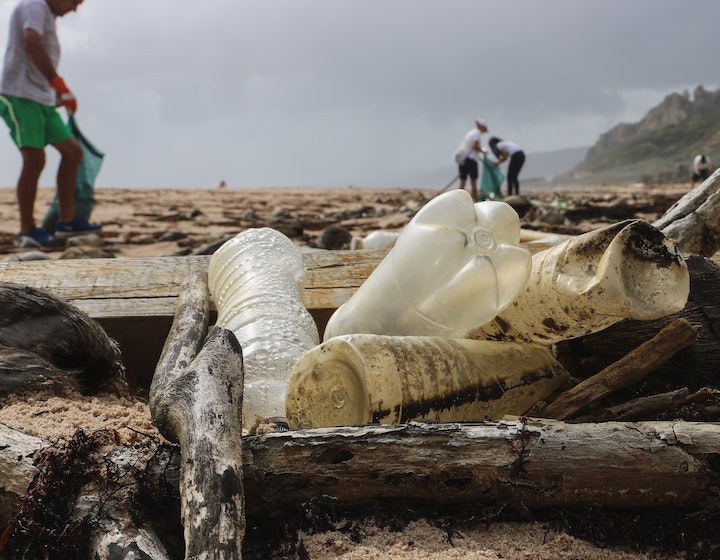
Waste Deep
Hauling ghost nets from the ocean floor is one way to clean up the seas; an alternative is to clean up around Hong Kong’s coastlines and country trails. Mark Winstanley recently joined founder Lisa Christensen to head up HK Cleanup, the city’s original cleanup organisation which has so far engaged more than 500,000 volunteers and cleaned up more than 10 million kilograms of rubbish from shorelines and trails. They specialise in bespoke managed corporate cleanup programmes and large-scale community events such as the Hong Kong Cleanup Challenge on World Cleanup Day. Winstanley shared with me how Covid and ensuing regulations have affected the environmental situation in Hong Kong.
“At the beginning of the pandemic, air quality improved almost immediately because of travel restrictions, and social distancing meant traffic reduction from the roads. However, the same cannot be said for our waterways which have been hard hit in recent months by PPE (personal protective equipment).”
Winstanley feels the urgency to raise awareness given the rubbish problem on our beaches will only increase as we head into the summer holidays. “COVID-19 triggered an estimated global use of 129 billion facemasks and 65 billion gloves, every month. It has also prevented volunteers from gathering to clean up the current rubbish washing up on our shores. But we now have the opportunity to get out there and start collecting the rubbish.”
In anticipation of an increase in cleanups, HK Cleanup has made improvements to the app, Cleanswell, in collaboration with Ocean Conservancy. The app records data collected by users around the world to deliver a global snapshot of ocean trash with all the meticulous details that Winstanley (a certified accountant) gets excited about. With the data collected, researchers and policy-makers would be better positioned to inform solutions for ocean conservation.
How You Can Participate
There are plenty of schools and environmentally-conscious brands that organise beach cleanups. Most of these events are child-friendly and are a great opportunity for kids to see the amount of waste we generate. Nothing teaches quite like doing and picking trash is likely to leave a lifelong desire not to create needless waste. If you are keen to join one as a family, keep an eye out on the Sassy Mama event calendar as there are regular postings about cleanups.
Alternatively, you can also book a managed corporate cleanup programme, where your company will take part in friendly competitions, by recording data on the Cleanswell. Enquire about sponsorship and participation in the 20th Annual Hong Kong Cleanup Challenge kicking off on Saturday, 18 September 2021, as part of the International Coastal Cleanup and of World Cleanup Day.
Read more: Where To Volunteer In Hong Kong: Nonprofits, Charities & Organisations
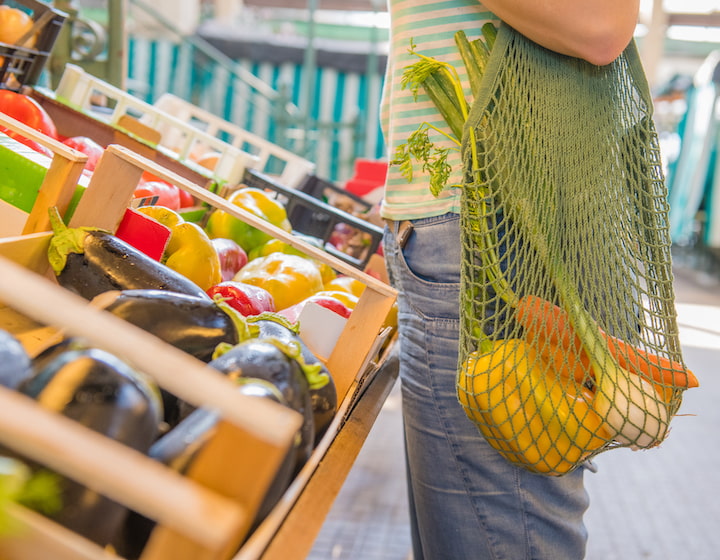
Be The Change You Want To See
Plastic Free Seas (PFS) is an NGO that addresses all forms of pollution, not just plastics, in the oceans and on our shores through education and action campaigns. Similar to HK Cleanup, PFS also organises group cleanups. Dana Winograd, Co-Founder and Director of Operations for PFS notes the marked increase in single-use mask collection. “We easily collect an average of 50 masks with every beach cleanup, and on one occasion we counted 135 pieces. There is an increase in wet wipes, tissues, hand sanitiser bottles – much of which ends up in the sea and gets washed up on shore or left on the beach.”
Winograd cannot emphasise the age-old adage of reduce, reuse and recycle enough. “We can make up a lot of trendy terms to address environmental concerns, but at the end of the day, it’s down to individuals to understand their single most important action is to reduce consumption.”
How You Can Help
Reducing consumption depends on the individual. Easy wins include using reusable masks, bringing containers to cafes, and having your own shopping bag. These are well within the realm of our control. Winograd’s advice is to look at what you are using that is single-use and ask yourself if you can replace it with a reusable alternative. If you must use a plastic bottle, for example, then ensure proper recycling. She recommends Community Green Stations as a reliable recycling programme that properly separates recyclable materials and also provides education on what and how to recycle.
Read more: How To Recycle In Hong Kong: Hassle-Free Tips For Reducing Waste
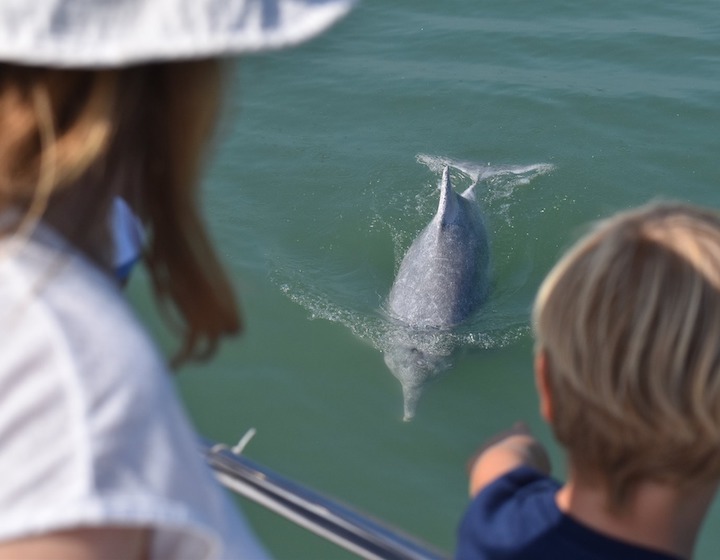
Sea The Future
Is it any coincidence Stokes, Winstanley and Winograd are all on the same wavelength? The message is clear: individuals can play a big role with small changes. But at the same time, the onus is on companies and governments to make sweeping changes to alleviate plastics pollution. Tammy Gan recently wrote in her article for Green is the New Black, that the current scale of our environmental problem is not one we can recycle ourselves out of; plastic production needs to be cut off at the source to create the biggest positive impact.
Given the scale of the problem, ocean conservation must be tackled from many angles, and as consumers and citizens, we have the responsibility to continue activities such as beach cleanups and recycling. Awareness of our oceans’ situation is the first step before taking action. Stokes leaves us with an encouraging note: “It’s just about being aware. Think about the food you have on your plate and where it’s come from, look at what you are using, and what you are wearing. Then take small actions on what you can fix!”
Read more: How To Host An Eco-Friendly & Sustainable Birthday Party For Kids
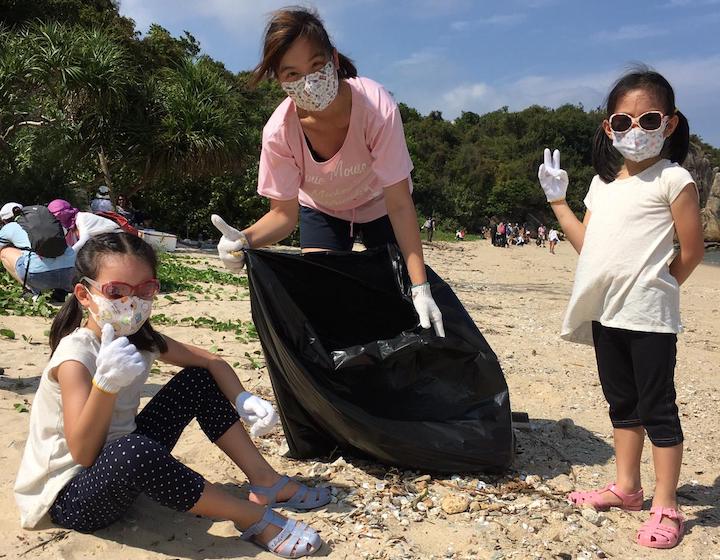
Ocean Conservation Advocacy & Education Activities In Hong Kong This Summer
If you would like to get involved in ocean conservation activities this summer and involve your children too, below are a few suggestions to get you started.
WWF Hong Kong has children’s programmes![]() that develop an appreciation for nature through experiential learning in natural habitats such as Mai Po Nature Reserve, Hoi Ha Wan Marine Park and Hoi Ha Marine Life Centre.
that develop an appreciation for nature through experiential learning in natural habitats such as Mai Po Nature Reserve, Hoi Ha Wan Marine Park and Hoi Ha Marine Life Centre.
![]() Plastic Free Seas provides schools free of charge educational tools on marine pollution, and have downloadable lesson plans. They also provide templates for individuals to write letters to encourage shops and eateries to use less plastic waste (perfect to sneak in some writing practice for your little ones as well!).
Plastic Free Seas provides schools free of charge educational tools on marine pollution, and have downloadable lesson plans. They also provide templates for individuals to write letters to encourage shops and eateries to use less plastic waste (perfect to sneak in some writing practice for your little ones as well!).
![]() Book a Corporate Programme for your company with Plastic Free Seas to learn more about environmental issues and take action with a beach cleanup.
Book a Corporate Programme for your company with Plastic Free Seas to learn more about environmental issues and take action with a beach cleanup.
![]() Join the HK Shark Foundation and teach your kids about the consequences of the shark fin trade with a walking tour through the streets of Sheung Wan. Learn about the dangers of overfishing, and more importantly, what you and your family can do to be a part of the solution.
Join the HK Shark Foundation and teach your kids about the consequences of the shark fin trade with a walking tour through the streets of Sheung Wan. Learn about the dangers of overfishing, and more importantly, what you and your family can do to be a part of the solution.
This list is not exhaustive and there are many different ways to contribute to a bluer planet. Whether you choose to start small by watching Seaspiracy on Netflix with the kids (and bracing yourself for the questions that follow) or taking a deep dive into ocean conservation activism, know that every bit counts. After all, little drops make the ocean.
Read more: Zero-Waste Living: Where To Find Eco-Friendly Essentials In Hong Kong
 View All
View All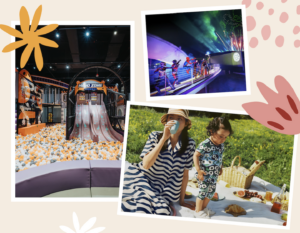
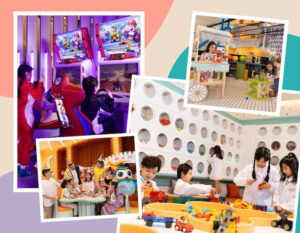

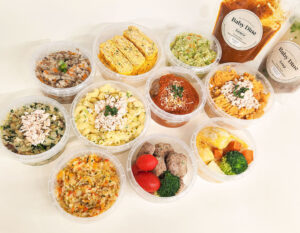




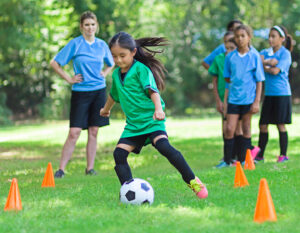


 View All
View All




 View All
View All


 View All
View All







